Called to Action: Hoyas in Service to Others
Two recipients of the Lena Landegger Community Service Award, Urooj Ahmed (C’24) and Caroline Vail (C’24) answer the call to be of service to others.
Read Full Story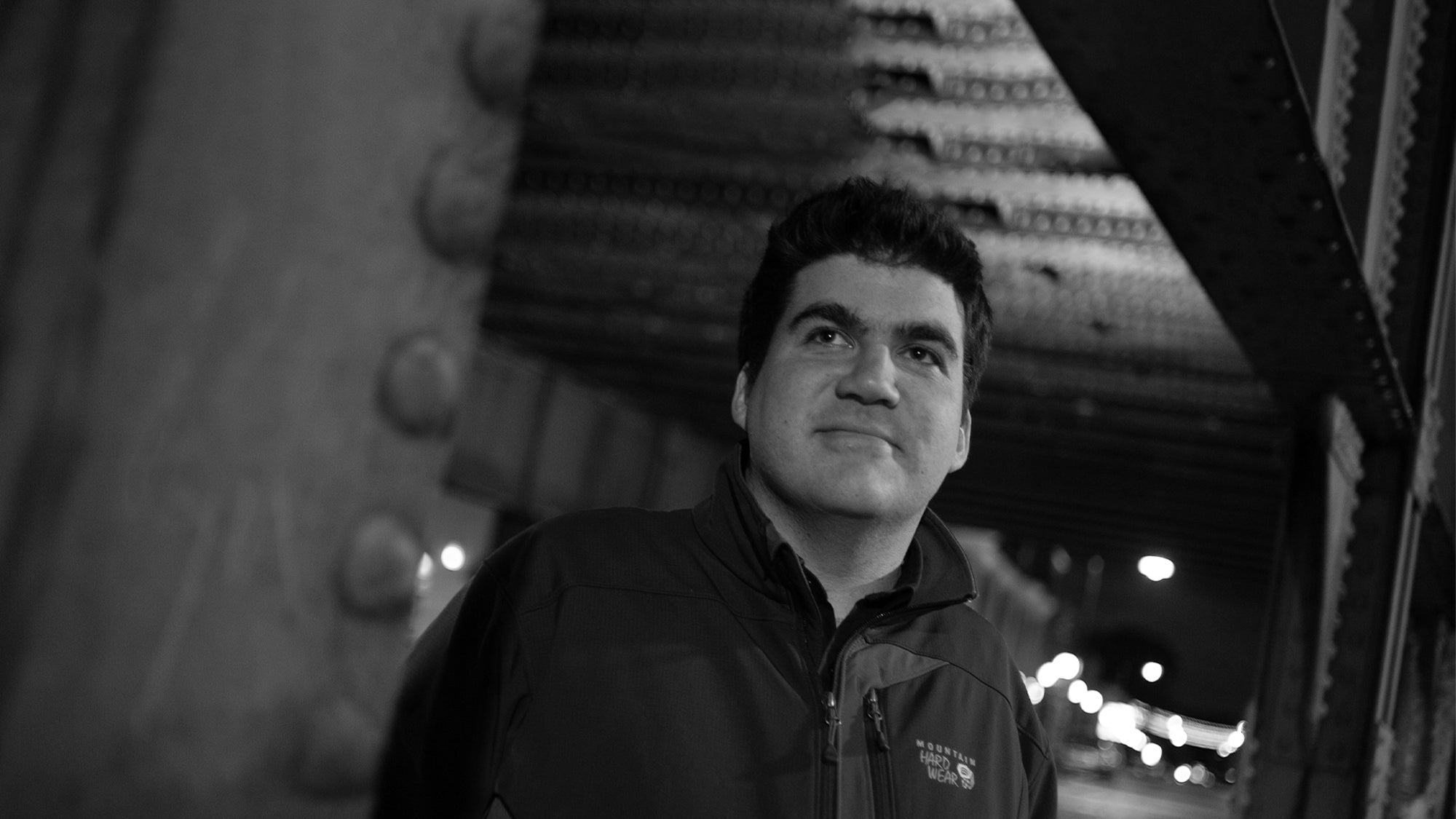
Bill Healy (C’05) tells authentic, human stories. It’s a craft that he’s honed over the past two decades as a journalist and educator in Chicago.
This year, Healy won the Pulitzer Prize in Audio Reporting and a Peabody Award for co-creating the podcast “You Didn’t See Nothin” with the Invisible Institute, a nonprofit newsroom on Chicago’s South Side.
The podcast is hosted by Yohance Lacour, who was a part-time weed dealer and college student in 1997, when a Black child from the South Side was beaten into a coma by a group of older teens after riding his bike into the predominantly white neighborhood of Bridgeport. Over the course of seven episodes, “You Didn’t See Nothin” explores how a narrative of reconciliation and forgiveness took hold after the attack, and how that has shaped Lacour’s life.
Healy was one of four producers who reported the story over a period of three years and wrote the episodes collaboratively with Lacour.
“They say good journalism comforts the afflicted and afflicts the comfortable,” Healy said. “That’s what I’ve aspired to do.”
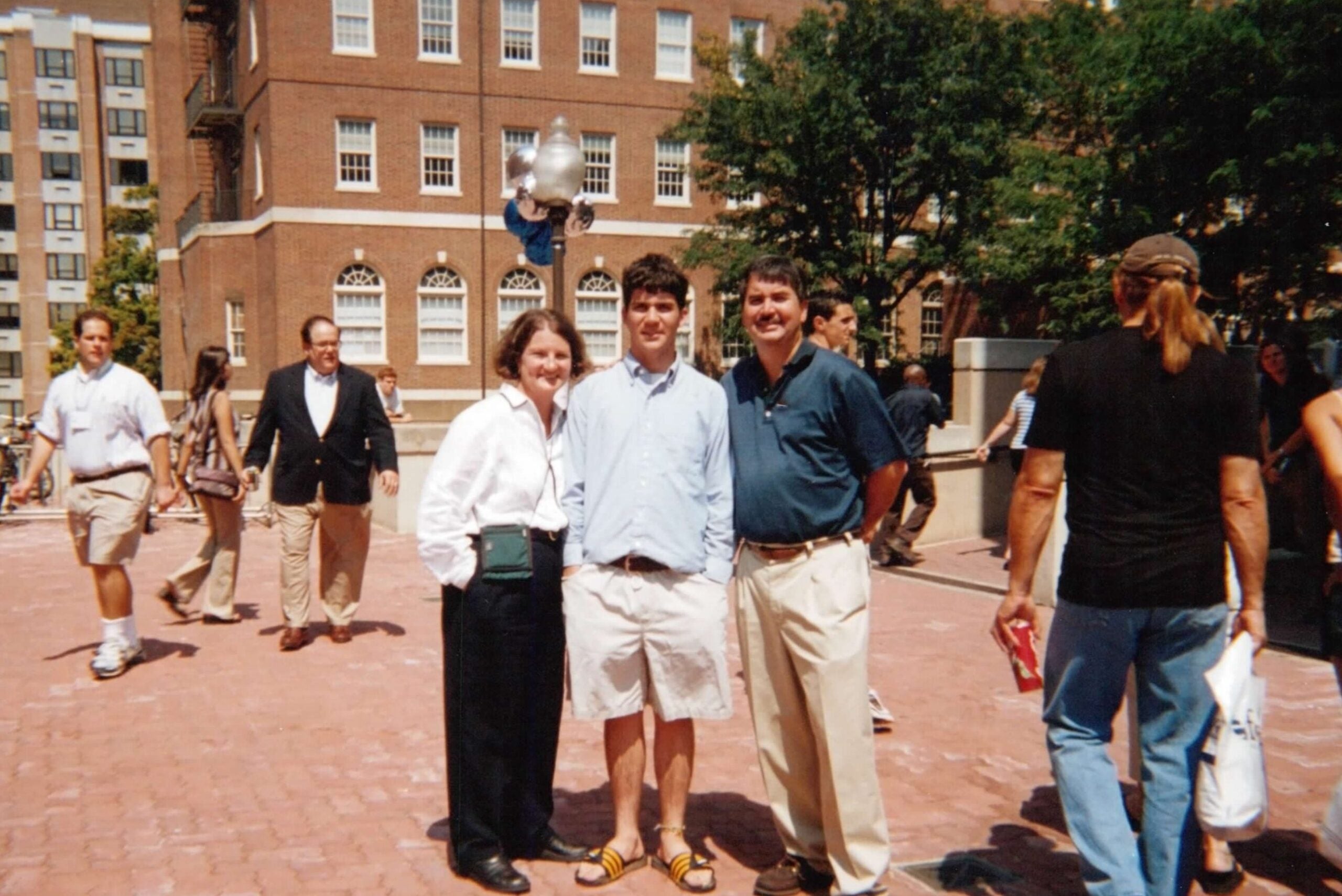
Healy with his parents during New Student Orientation in 2001.
Healy grew up in suburban Chicago steeped in Jesuit education. His mom, Nancy (Wendt) Healy (B’76) is a proud Georgetown alumna. He attended St. Ignatius College Prep before arriving on the Hilltop in 2001.
During his early years at Georgetown, Healy took sociology courses with Dennis McNamara, S.J., and Sam Marullo, which reoriented his worldview. Marullo’s classes, in particular, emphasized real-world applications of sociology, something that Healy found incredibly powerful.
“All I’ve ever wanted to do is serve other people,” said Healy. “Sam Marullo showed me how to do that. He had this sincere desire to make the world better. His class was the first time I realized you could study how people interact and organize themselves and then make use of that.”
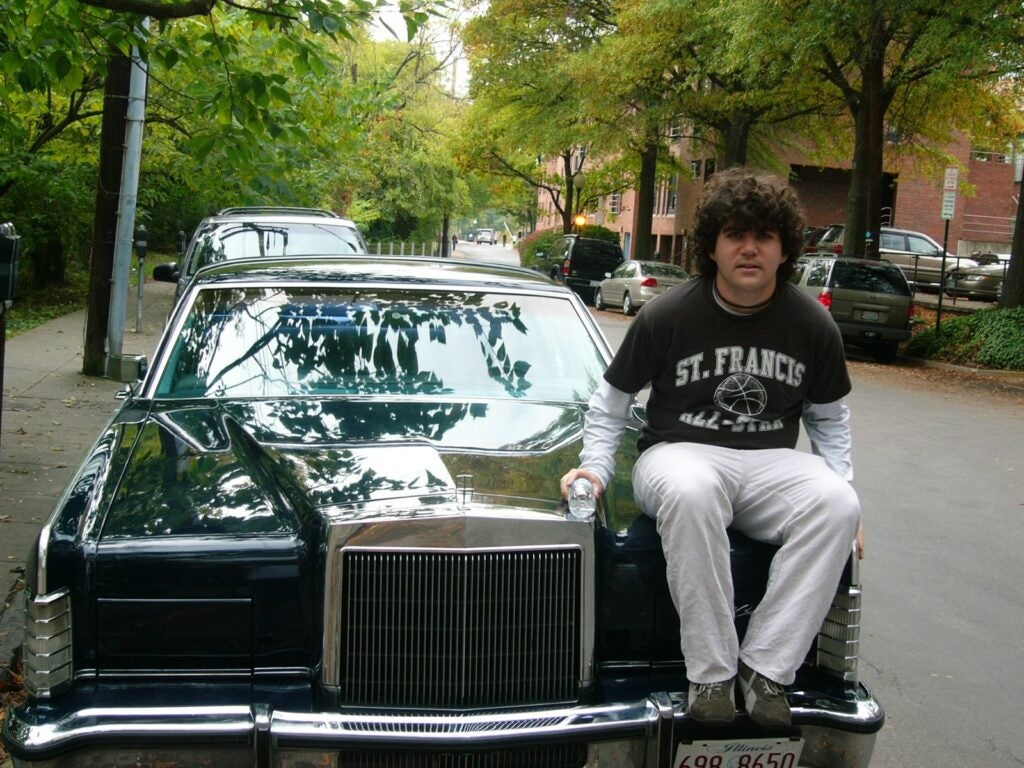
Healy sits atop the hood of a friend’s car parked on Prospect Street in 2004.
The Center for Social Justice Research, Training and Service (CSJ) opened its doors a few months before Healy arrived on campus and he remembers feeling energized by its presence. Ultimately, he decided to major in sociology because it provided an intersection between academia and real-world avenues for social justice.
“There’s an expectation at Georgetown that you’re going to engage with the world. And that you have certain responsibilities as a member of the community, to leave things better than you found them,” said Healy.
After graduating in 2005, Healy moved back to Chicago where he taught fifth grade through a volunteer program called the Inner-City Teaching Corps. He lived in community with five other teachers and earned a master’s in education from Northwestern University.
When the volunteer program ended, Healy went to work at Cristo Rey Jesuit High School in Chicago’s Pilsen neighborhood.
“As a teacher, I felt like I was helping. But I also found that I was drawn more to the stories that students told me, and retelling them to others,” said Healy.
Realizing that his passion lay in storytelling, Healy went back to Northwestern and earned a master’s in journalism. He landed an internship at Chicago’s public radio station, WBEZ, and began building out a network of freelancing gigs and community contacts.
From 2014 until 2021, Healy edited a weekly StoryCorps segment for WBEZ. StoryCorps, an oral history project that utilizes public recording booths where people interview family members and friends, allowed Healy to fine tune his producing schools. He edited hundreds of hour-long conversations into 3-minute radio stories, on all manner of topics, from childhood friends reuniting to coming out in elementary school.
“Editing StoryCorps for so long honed my ability to listen,” Healy said. “To pay close attention, not just to what people are saying, but how they’re saying it.”
“It’s this incredibly intimate archive of people interviewing their loved ones. It’s real people talking to each other about universal things: love and loss. It’s not like other stuff you hear on the radio. It almost feels like you’re eavesdropping.”
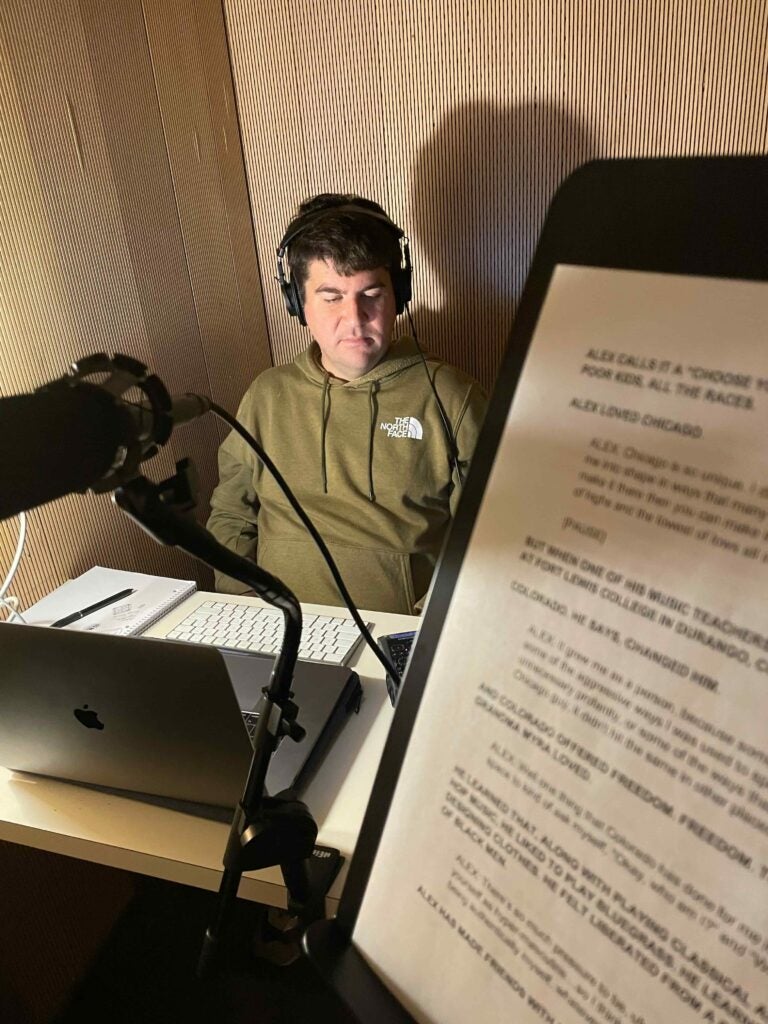
Healy, recording and editing audio for a story, in the studio.
During this time, Healy was part of a small team at WBEZ that won a National Edward R. Murrow Award for producing a “This American Life” story about heroin users in Puerto Rico being sent to Chicago on one-way tickets.
And then he got involved with the Invisible Institute, which is dedicated to investigative journalism that holds public institutions accountable. Early in the pandemic, Healy co-created the investigative podcast “Somebody,” which was a finalist for the 2021 Pulitzer Prize in Audio. “Somebody” tells the story of Shapearl Wells, and her attempts to get answers from police about her son’s murder.
“It’s not by accident that I’m drawn to these big stories about systemic failures. I’m trying to create change,” said Healy.
Earlier this year Healy won the Studs Terkel Award from Public Narrative for his work, which “combines deep narratives with investigative insight, spotlighting Chicago’s vital issues and shaping public understanding.
In addition to producing local journalism, Healy teaches classes in documentary storytelling at Northwestern. He still looks back on time at Georgetown with fondness.
“Georgetown is where my heart is,” said Healy. “It’s where my closest friends are from, and it’s where I grew into the person that I am today.”
Cover photo by Steve Liss.

Two recipients of the Lena Landegger Community Service Award, Urooj Ahmed (C’24) and Caroline Vail (C’24) answer the call to be of service to others.
Read Full Story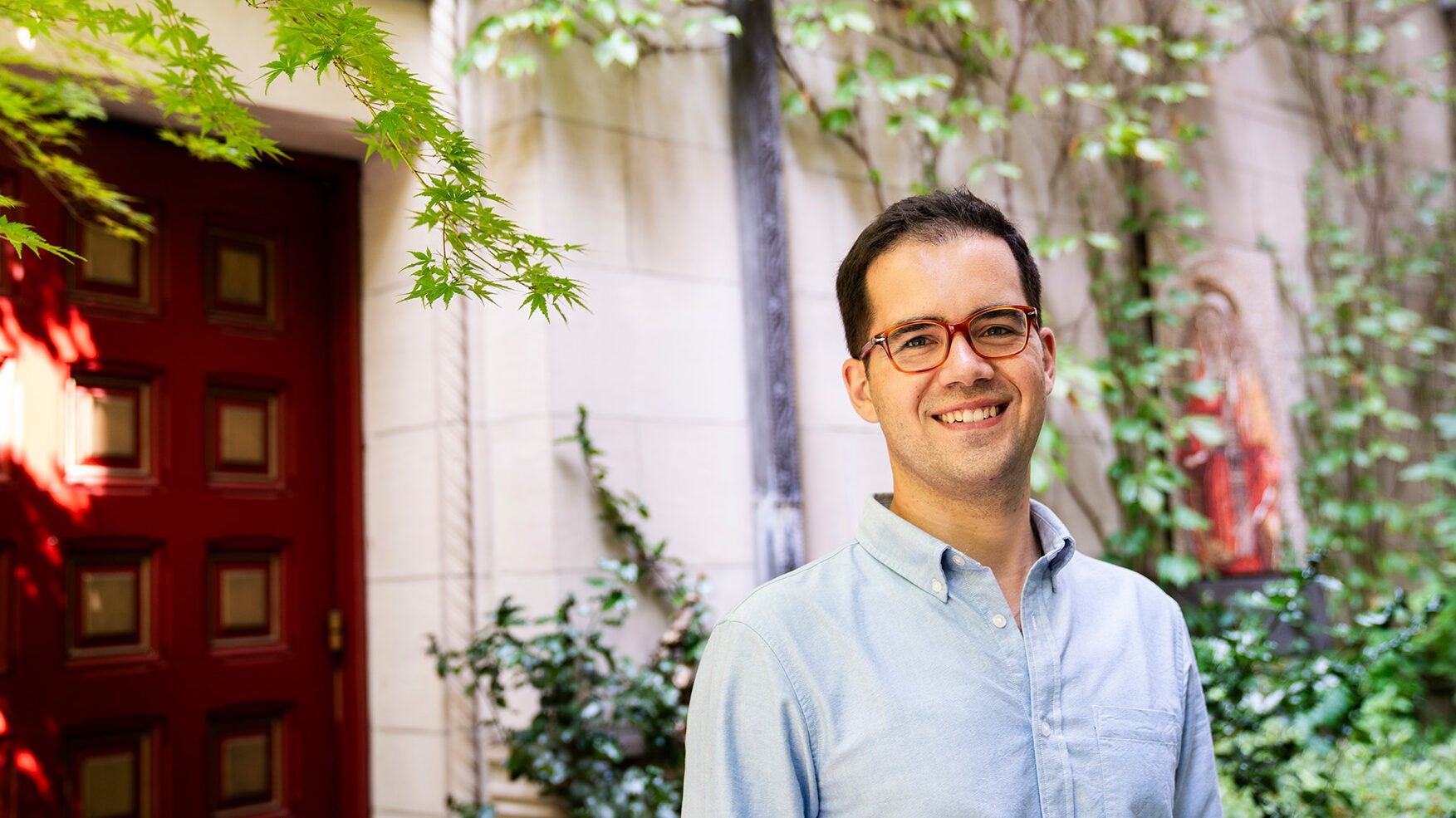
Pietro Bartoli (C’17), the program director of the Solidarity Project, works to provide services and build community among New York City’s unhoused population.
Read Pietro’s Story